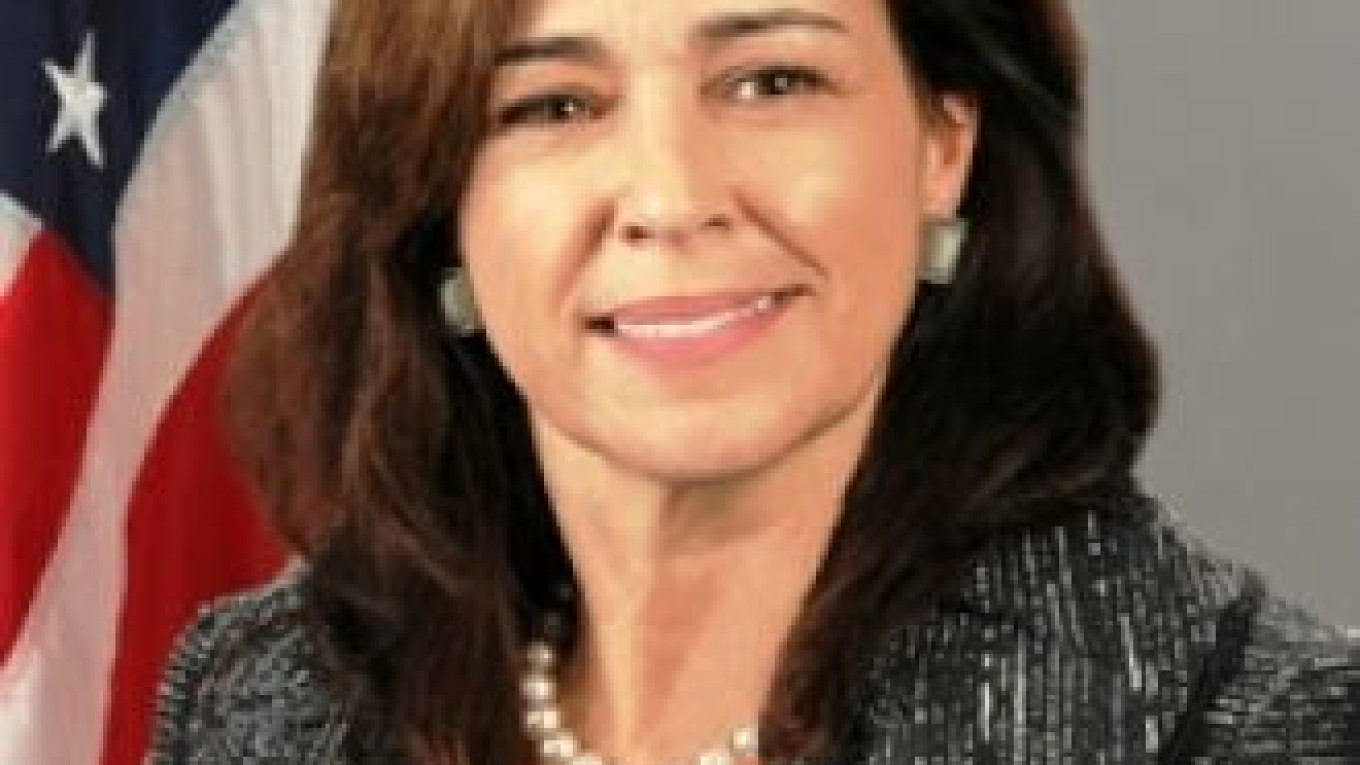Concerns about participants' safety, health and well-being are behind record visa refusal rates for Russian university students applying to work and travel in the United States this summer, a senior State Department official told an audience at the American Center in Moscow on Wednesday.
Tara Sonenshine, the State Department's head of public diplomacy and public affairs, said the program's rapid growth — participation peaked in 2008 at 153,000 students, including about 27,500 Russians, more than any other nationality — led to quality issues that are still being addressed.
"For a while, we've been looking at how to improve [participants'] health, safety, welfare, educational experience and cultural experience, and even if that means the numbers have had to come down a bit, we still have to be dedicated," Sonenshine said in response to a question from The Moscow Times.
"Our most important priority is the security, health and well-being of people who come for a summer to travel and work," she said.
Sonenshine oversees three State Department bureaus, including the Bureau of Educational and Cultural Affairs, which runs the Summer Work and Travel Program, and she reports directly to Secretary of State John Kerry.
Media reports of participants, disproportionately Eastern European, working and living in substandard conditions and overstaying their visas, as well as mafia-linked human trafficking, led to tighter oversight rules beginning in 2011 and a cap on the program's size.
Last year, Russia fell to fourth place among source countries, sending about 6,000 students, as visa refusal rates climbed to an estimated 35-40 percent of applicants.
Refusal rates at the U.S. Embassy in Moscow have reached a record 80-90 percent this year, leaving hundreds of students feeling cheated, according to applicants and the local agencies that assist them.
Sonenshine said she did not know what students who have yet to apply could do to boost their chances. "But what I know is that we're a very welcoming, beckoning country, and I just hope that those who come will come back with great memories and great experiences," she said.
The program, created as a public diplomacy tool in the 1960s, allows foreign university students to work and travel for up to four months in the United States, where most work low-skilled jobs at resorts, theme parks and restaurants, and experience American culture.
Contact the author at [email protected]
Related articles:
A Message from The Moscow Times:
Dear readers,
We are facing unprecedented challenges. Russia's Prosecutor General's Office has designated The Moscow Times as an "undesirable" organization, criminalizing our work and putting our staff at risk of prosecution. This follows our earlier unjust labeling as a "foreign agent."
These actions are direct attempts to silence independent journalism in Russia. The authorities claim our work "discredits the decisions of the Russian leadership." We see things differently: we strive to provide accurate, unbiased reporting on Russia.
We, the journalists of The Moscow Times, refuse to be silenced. But to continue our work, we need your help.
Your support, no matter how small, makes a world of difference. If you can, please support us monthly starting from just $2. It's quick to set up, and every contribution makes a significant impact.
By supporting The Moscow Times, you're defending open, independent journalism in the face of repression. Thank you for standing with us.
Remind me later.


